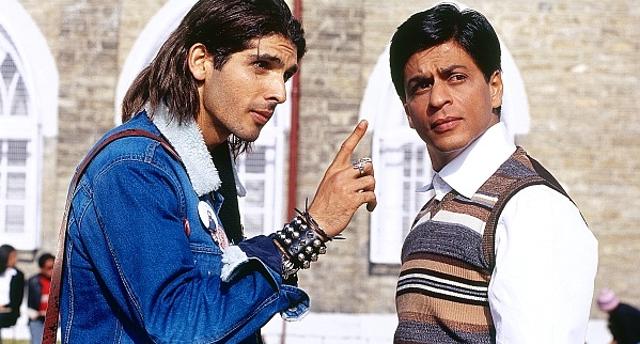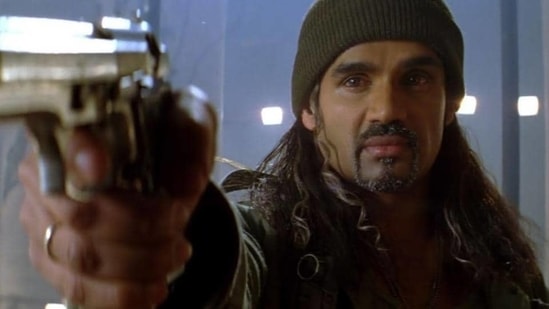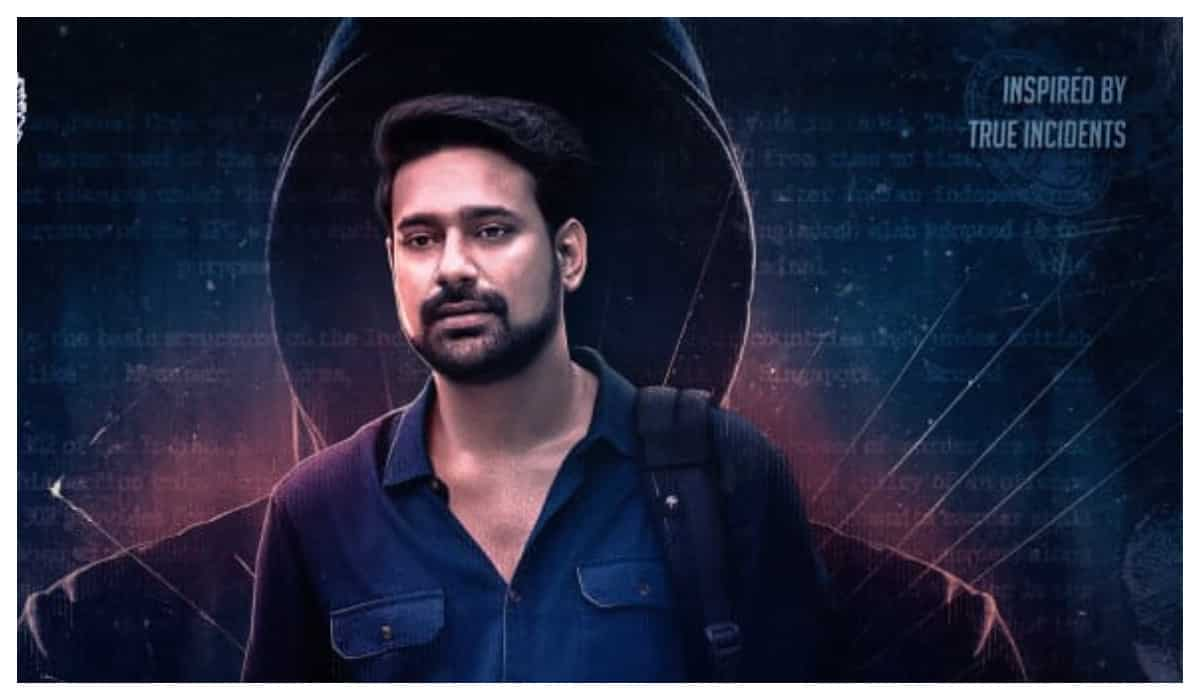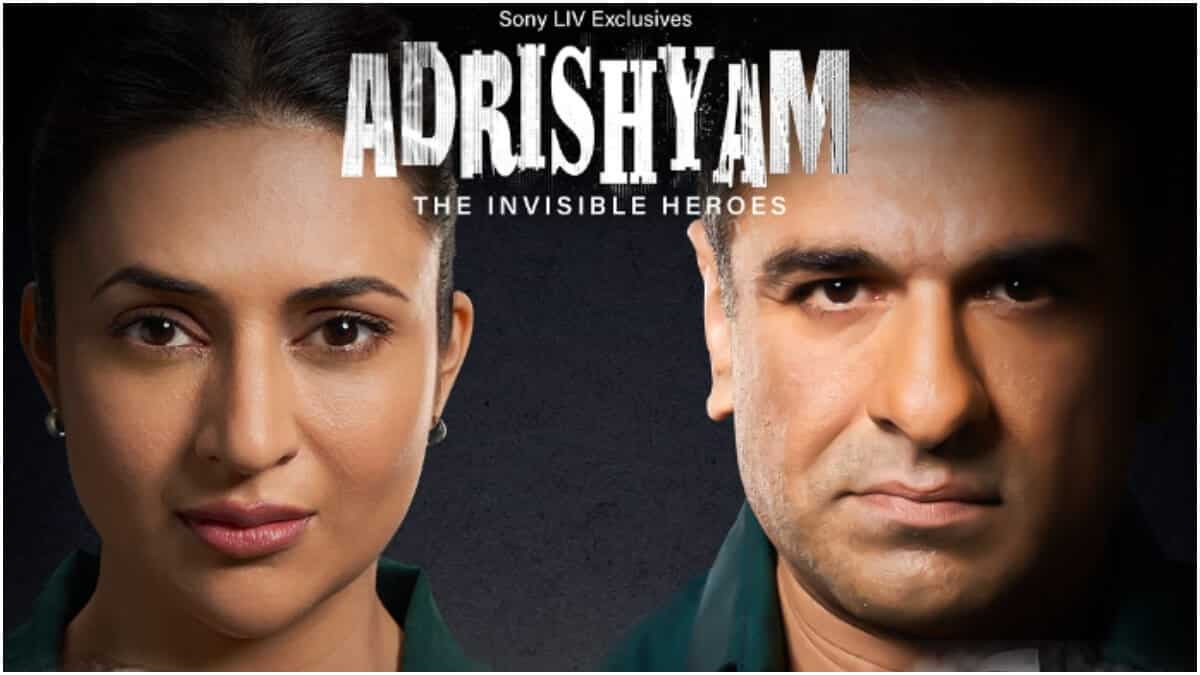
Main Hoon Na: Farah Khan's directorial debut was as much a love letter to movies as her Om Shanti Om
16 days ago | 26 Views
Farah Khan's second directorial Om Shanti Om (2007) encapsulates her love for all things movies. It's set in the heart of the Hindi film industry and also traces the evolution of Bollywood over the years. But it's her directorial debut Main Hoon Na (2004), which completes 20 years since its release today, that set the tone for the kind of filmmaker she is – she eats, breathes, and repeats cinema. Here's how Main Hoon Na walked so that Om Shanti Om could run.
Nomenclature
Ever wondered who Shah Rukh Khan and Zayed Khan's characters, Ram and Lakshman, are named after? Yes, of course, the Ramayana. Or the Mahabharata, as Lucky would say incorrectly. There's also Suniel Shetty's villain Raghavan (named after Rawana) for good measure. But isn't Lucky more Bharat than Lakshman? Two brothers divided – only to reunite later.
Well, it's quite possible that their names are taken from Hrishikesh Mukherjee's 1979 cult comedy Gol Maal. Amol Palekar played Ramprasad Sharma (rings a bell?), a mild-mannered man who also assumes the identity of his spoilt fictitious brother Lakshmanprasad Sharma (ding dong, again?).

Also, Ram and Lakshman's father in Main Hoon Na is no Dasharatha. Naseeruddin Shah plays Shekhar, an army man who takes his illegitimate child into his custody, much to the resentment of his wife Madhu (Kirron Kher). This subplot is picked directly from Shekhar Kapur's 1983 directorial debut Masoom. That's where the father's name comes from, in case you're still wondering.
And finally, Chandni Chopra. The chiffon sari-clad, khule baalon mein bahut achhi lagne wali Chemistry teacher played by Sushmita Sen is named after Yash Chopra's 1989 romantic movie Chandni. Sridevi played the titular role there and was a quintessential Yash Chopra heroine. Chandni + (Yash) Chopra = geddit?

The action
Main Hoon Na's action, designed by Alan Amin and “thrills” by Shah Rukh himself, is where Sholay meets The Matrix. No, it's not a spaghetti Western with horses and dacoits, but Farah blends the masala of a good ol' Bollywood action movie with the smooth stunts of a slick Hollywood actioner so well that it created a new language of action in Hindi cinema.
Sample the scene when Shah Rukh chases Raghavan's men in a cycle rickshaw. He's in the queue with his friends to buy tickets to a show of Ramesh Sippy's 1975 blockbuster movie, when he averts an attack on them by Raghavan's men in an SUV. He chases them in a cycle rickshaw named Dhanno, after Basanti's (Hema Malini) popular horse from Sholay. When he grabs hold of Khan (Murli Sharma), he ends the scene with a dialogue from that film as well, “Tera kya hoga re Kaalia?”
The slow-motion sequences in the film are clearly inspired by the Wachowski sisters' 1999 seminal sci-fi action film The Matrix, which also completed 25 years after its release recently. Farah even acknowledges that after Shah Rukh dodges Satish Shah's lethal split with a slow-mo backflip bend, prompting Bindu to exclaim, “Haai ni, ye toh matric mein tha na?,” only for her colleague to correct her, “You mean Matrix?”
The music
Anu Malik's soundtrack ranges from a party number (Gori Gori) to a long-take intro song (Chale Jaise Hawayein). But it's the return of the qawwali that makes the album stand out. A fixture in films of the 1960s and '70s, from Yash Chopra's Waqt (1965) to Manmohan Desai's Amar Akbar Anthony (1977), the qawwali was the go-to dance form to underline plot points. Farah combines her love for the qawwali with her impeccable choreography skills to make Tumse Milke Dil Ka the qawwali number we didn't know we needed in the new millennium.
Old Bollywood songs are also integrated into the background score and the plot itself. From Jaane Ja Dhoondta Phir Raha from Jawani Diwani (1972) set to Ram's search for Lakshman in the college campus to romantic tracks like Chand Mera Dil (Hum Kisise Kum Naheen, 1977) and Ek Ladki Ko Dekha Toh (1942: A Love Story, 1994) belted out by Shah Rukh with a bunch of hormonal violinists for Sushmita, every melody from Bollywood's treasure trove is so aptly utilised. Hell, Shah Rukh even croons the Soldier (1998) title track to remind himself of his profession.
The end-credit song, Ye Fizaein, is also an ode to the phenomenon of filmmaking. Each member of Farah's cast and crew, from the DoP to the lightman, the costume designers to the make-up artists, is introduced through that song. It went on to become a Farah Khan trademark, much before her cousin Zoya Akhtar put the spotlight on the people behind the movies in the opening sequence of her 2009 directorial debut, Luck By Chance.
The politics
Farah has grown up on the Amar-Akbar-Anthony balanced diet of cinema. The virtue of secularism, in which her uncle Javed Akhtar and Salim Khan steeped their stories, also forms the beating heart of her movies. Main Hoon Na juxtaposes the micro story of two separated half-brothers against the macro story of Project Milaap, India and Pakistan's historically friendly gesture. The villain isn't a Pakistani or a Kashmiri, but a disillusioned former Indian Army officer whose child was killed by the Pakistani army. And there's the good Muslim, Khan, another motif in Hindi cinema of the ‘60s and '70s, like Sher Khan, played by Pran, in Prakash Mehra’s Zanjeer (1973).

With its ganga-jamuni tehzeeb, retro touch to the music, stylised yet masaaledaar action set pieces, and hat tips to Bollywood's golden era, Main Hoon Na turned out to be every Hindi cinephile's wet dream. And Farah-Shah Rukh's 2007 follow-up Om Shanti Om further made sure that “picture abhi baaki hai, mere dost."
Read Also: tiger 3 releases in japan, salman khan records message for his japanese fans – watch
# Salmankhan # Bollywood # Socialmedia















